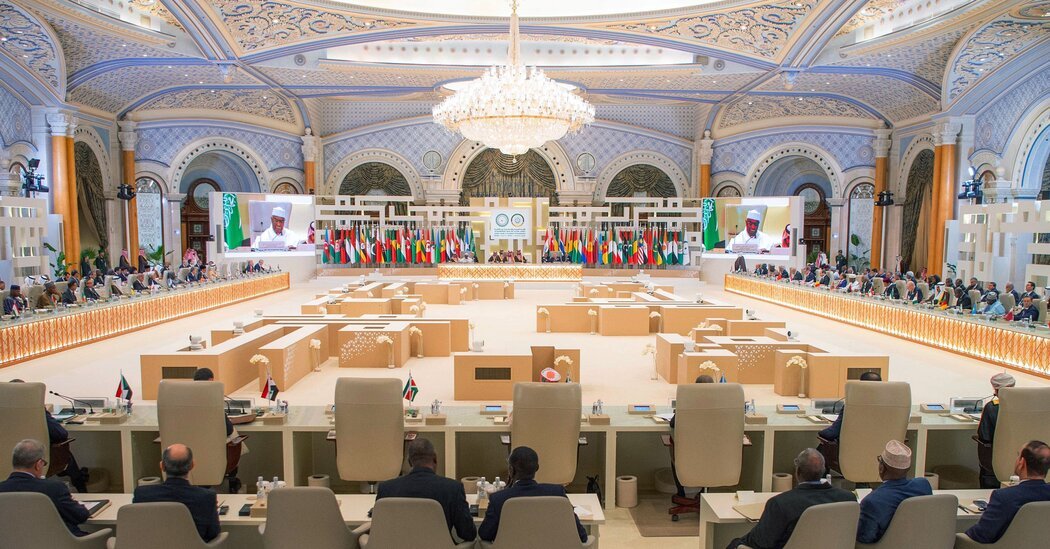Advertisement
Leaders from across the Arab and Muslim world were in Riyadh for a meeting officially convened to discuss the fighting in Gaza and Lebanon.

Leaders from across the Arab world gathered on Monday in the capital of Saudi Arabia for a summit that came at a delicate moment for the kingdom, which has signaled a rapprochement with Iran after a violent, decades-long rivalry.
The meeting was officially convened to discuss the fighting in Gaza and Lebanon, where Israel’s military is battling Iran-backed militant groups. It takes place amid heightened regional tensions and the prospect of a hawkish Trump administration on Iran.
Saudi Arabia had been preparing to recognize Israel, but the wars in Gaza and Lebanon cooled that prospect. Now, the kingdom and its allies find themselves warming to Tehran. Last month, the foreign ministers of Gulf States met for the first time as a group with their Iranian counterpart. On Sunday, the Saudi and Iranian military chiefs met in Tehran — further signaling a thaw in relations as Iran considers a response to Israeli attacks on its territory.
Saudi Arabia’s powerful crown prince, Mohammed bin Salman, emphasized the relationship in his opening remarks at the event, a joint summit of the Arab League and the Organization of Islamic Cooperation on Monday.
“We call on the international community to compel Israel to respect Iran’s sovereignty and not to attack its territory,” he told the audience in Riyadh, the Saudi capital.
Saudi Arabia and Iran have been locked in a long battle for regional dominance, a rivalry shaped by the competing branches of Islam each country embraces. Iran’s network of regional proxies — which includes Hamas in Gaza and Hezbollah in Lebanon — has long been a particular source of concern for Saudi Arabia.
While Hamas and Hezbollah have been weakened by the Israeli military’s operations in Gaza and Lebanon, Iran still arms and supports the Houthis in Yemen — a group that has been implicated in attacks on the kingdom.
“The issue that we’ve had, and that was the basis for the divergence in our relationship, was Iran’s regional behavior, which from our perspective has not contributed to stability,” the Saudi foreign minister, Prince Faisal bin Farhan, said last week. “We are having very, very clear and honest conversations with the Iranians.”
Not everyone at the summit on Monday in Riyadh appeared keen to pursue further alignment with Iran. Lebanon’s caretaker prime minister, Najib Mikati, demanded that countries stop “interfering in its internal affairs by supporting this or that group” — an implicit reference to Iran’s longtime support of Hezbollah.
Image
Analysts said that in addition to signaling greater warmth toward Tehran, Saudi Arabia could also be using the summit in Riyadh as an opportunity to send a message to the incoming Trump administration. President-elect Donald J. Trump has said he will “stop wars” when he takes office, noted Hasan Alhasan, a senior fellow for Middle East policy at the International Institute for Strategic Studies.
“Saudi Arabia could be trying to position itself as an attractive and credible choice for the Trump administration to work with if Trump follows through with his pledge to broker a deal to end the war, especially given the fact that diplomatic efforts led by other regional mediators, notably Qatar and Egypt, have failed to bear fruit,” Mr. Alhasan said.
Ismaeel Naar is an international reporter for The Times, covering the Gulf states. He is based in Dubai, United Arab Emirates. More about Ismaeel Naar
Advertisement
